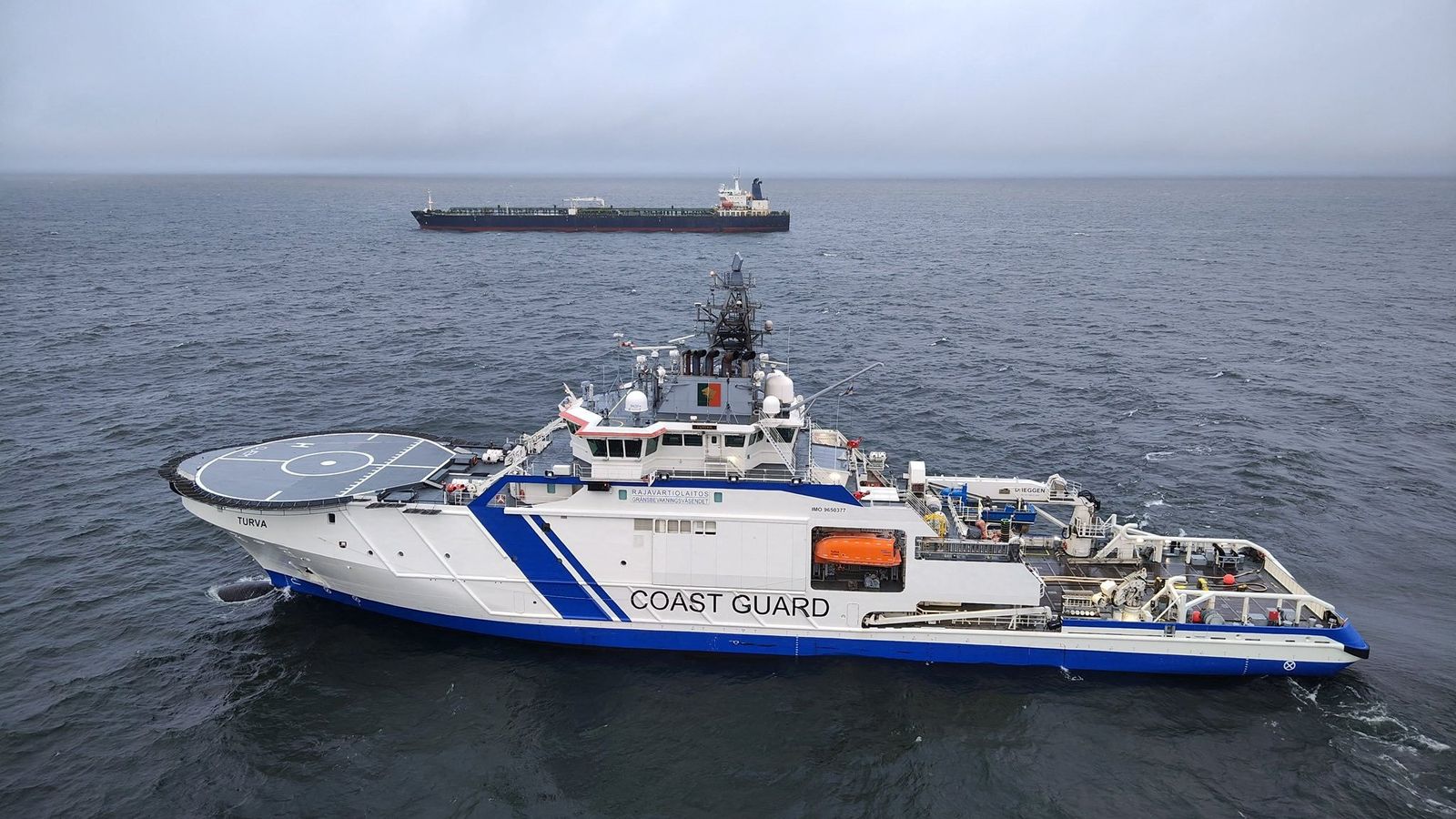The UK and a group of allies have launched an operation that will use artificial intelligence to better spot threats to undersea cables and track the movement of a “Russian shadow fleet”.
The mission by the Joint Expeditionary Force (JEF) began last week, they said on Monday.
It comes after a tanker carrying Russian oil was suspected of damaging an undersea power cable between Finland and Estonia on Christmas Day as well as four telecommunications cables in the Baltic Sea.
John Healey, the defence secretary, said: “The UK and JEF are leading the way in providing support to our allies to help safeguard the offshore infrastructure we all rely on against potential threats.”
He said the operation – dubbed Nordic Warden – would “help protect against both deliberate acts of sabotage as well as cases of extreme negligence which we have seen cause damage to underwater cables”.
The Ministry of Defence said the UK-led “reaction system” – an AI-assisted computer program – would use AI to monitor large areas of the sea and track vessels by drawing on a variety of data, including the Automatic Identification System (AIS) ships use to broadcast their position.
Particular ships of interest include a so-called “shadow fleet” of vessels deployed around the world transporting embargoed Russian oil products.
One of these vessels – the Eagle S, a tanker registered with the Cook Islands – is suspected by Finnish police of having damaged the Estlink 2 electricity cable, which became disconnected on 25 December.
It is just one in a series of incidents of Russia-linked vessels damaging underwater infrastructure in what NATO allies have described as being part of a campaign of hybrid warfare under the threshold of conventional conflict.
A top NATO official told Sky News in an interview last month there is a “real prospect” an unconventional attack by Russia against NATO – such as an act of sabotage or arson – would cause “substantial” casualties.
James Appathurai, who is updating a NATO strategy to track and deter so-called hybrid warfare, said allies must be clearer among themselves and with Moscow about what level of grey zone hostilities could trigger an allied response, including the use of military force.
Under the new maritime protection operation, the UK said if a suspicious vessel is identified, its movement would be tracked by the “reaction system” in real-time, sending out warnings that would be shared with JEF nations as well as the wider NATO alliance.
The 10-nation JEF comprises the Baltic states, Scandinavian nations as well as other like-minded countries, including the UK. They are all also members of NATO.
The JEF, headquartered at a military base in Northwood, northwest London, monitors maritime activity in 22 areas of interest, including parts of the English Channel, North Sea, Kattegat, and Baltic Sea.
Read more from Sky News:
Golden Globes winners revealed
Motorbike-sized tuna sold at auction for more than £1m
Pitfalls to avoid in January sale holiday search
As well as announcing their new operation, the JEF nations issued a statement about the damaging of the Estlink power cable.
“This is another example of maritime incidents causing direct economic and security implications for Finland and Estonia, highlighting the risks to vital communication and energy networks essential for the security and prosperity of all our nations,” they said.
“The JEF commends Finland and Estonia for their decisive actions in dealing with the Estlink-2 power cable incident. We remain committed to supporting Participant Nations, NATO, and Allies in safeguarding our shared interests and regional stability.”
Checkout latest world news below links :
World News || Latest News || U.S. News
The post UK and allies to use AI to protect undersea cables from Russian shadow fleet attacks appeared first on WorldNewsEra.

